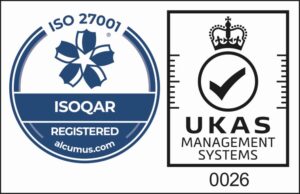Exploring IT MSPs’ Role in IT Disaster Recovery Planning and Testing
Disasters, whether natural or man-made, can strike unexpectedly, disrupting business operations and jeopardizing critical data and systems. In such scenarios, having a robust IT disaster recovery (DR) plan is essential to ensure business continuity and minimize downtime. However, designing and implementing an effective disaster recovery strategy requires specialized knowledge, resources, and continuous testing to validate its efficacy. This is where IT Managed Service Providers (MSPs) play a crucial role. MSPs are instrumental in IT disaster recovery planning and testing, providing businesses with the expertise and support needed to protect their IT infrastructure and data in the face of adversity. Let’s explore the role of IT MSPs in IT disaster recovery planning and testing:
Disaster Recovery Planning
MSPs work closely with businesses to develop comprehensive disaster recovery plans tailored to their specific needs and risk profiles. They conduct thorough risk assessments to identify potential threats and vulnerabilities. MSPs help businesses establish recovery time objectives (RTOs) and recovery point objectives (RPOs) that align with critical business processes. They create detailed procedures for data backup, system recovery, and infrastructure restoration to ensure that IT services can be rapidly resumed after a disaster.
Infrastructure Assessment and Design
MSPs assess the existing IT infrastructure to identify potential single points of failure and areas that require redundancy for high availability. They assist businesses in designing a resilient IT architecture that incorporates redundancy and failover mechanisms to enhance system reliability and minimize downtime.
Cloud-Based Disaster Recovery
MSPs leverage cloud computing to provide cost-effective and scalable disaster recovery solutions. They help businesses implement cloud-based backup and recovery services, allowing critical data and applications to be replicated to off-site data centers. Cloud-based disaster recovery ensures that businesses can restore their IT services quickly and efficiently without the need for physical hardware.
Backup Management
MSPs manage the backup process, ensuring that critical data is regularly backed up and securely stored. They implement data deduplication and compression techniques to optimize storage space and reduce backup times. MSPs monitor backup operations to ensure the completeness and integrity of backup data.
Regular Disaster Recovery Testing
One of the most critical aspects of disaster recovery planning is testing the plan regularly. MSPs facilitate and conduct disaster recovery testing exercises to validate the effectiveness of the plan. They simulate various disaster scenarios and assess the response of the IT infrastructure. Through testing, MSPs identify any weaknesses or gaps in the recovery plan, allowing businesses to make necessary improvements and refinements.
Continuous Monitoring and Maintenance
MSPs provide ongoing monitoring of the disaster recovery environment to ensure its readiness at all times. They conduct regular assessments of the IT infrastructure, perform updates, and apply patches to maintain its resilience. MSPs monitor changes in the business environment and IT landscape to ensure that the disaster recovery plan remains up-to-date and relevant.
Rapid Response and Recovery
In the event of a disaster, MSPs play a critical role in executing the disaster recovery plan. They rapidly respond to the incident, initiating the recovery process and minimizing downtime. MSPs coordinate with businesses’ internal IT teams, third-party vendors, and cloud service providers to ensure a coordinated and effective response.
Compliance and Reporting
MSPs help businesses meet regulatory requirements related to disaster recovery planning and testing. They provide documentation and reports required for compliance audits, demonstrating that the business has a well-defined and tested disaster recovery strategy in place.
By partnering with IT MSPs for disaster recovery planning and testing, businesses can significantly enhance their readiness to withstand disasters and ensure continuous IT operations. MSPs bring expertise in designing and implementing resilient IT infrastructures, leveraging cloud technologies, and conducting regular testing to validate the disaster recovery plan. With the support of MSPs, businesses can face disasters with confidence, knowing that their critical IT services are protected and can be restored promptly, enabling them to quickly recover and continue providing services to their customers.




